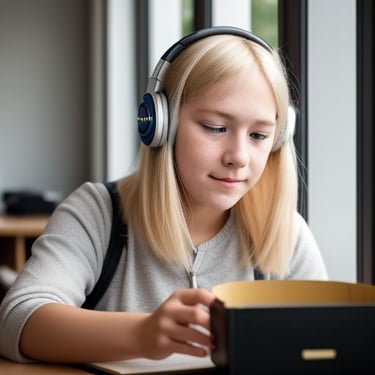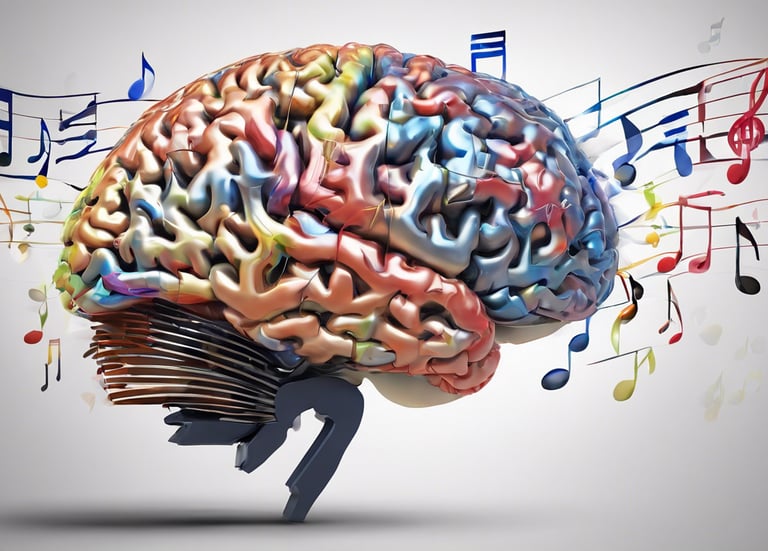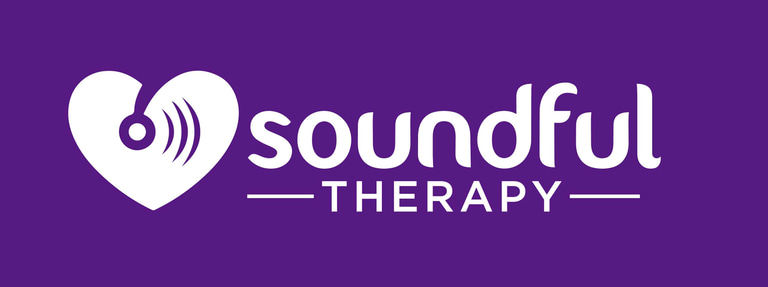Enriching Lives
We provide musical therapy tools to enhance the quality of life for your loved ones whether they are living at home, in a long term or acute care facility, or in hospice, our stereo-phonic devices, pre-loaded with soundful melodies, are designed to bring comfort and joy to those coping with Alzheimer's and other ailments.




Music and Alzheimer's
Discover how music helps with anxiety, mood, and happiness.


EEG Analysis of the Contribution of Music Therapy and Virtual Reality
to the Improvement of Cognition in Alzheimer’s Disease;
These are the Conclusive Remarks found in section 8 of the original paper.
The aim of this paper was to introduce and support a theory by which music can enhance cognitive functions in Alzheimer’s disease. We propose that the pleasurable experience of music is directly tied to the activation of the brain reward system; a network of interconnected brain structures was involved in dopaminergic activity and in turn the rewarding and motivational experience. The activation of these pathways leads to increased release of dopamine and therefore the subjective experience of pleasure in the listener’s brain. This uplift in emotional state can be linked with better cognitive performances, as suggested by various studies in the fields of neuroscience and computer science’s intelligent tutoring systems.
We explore this theory through a study we conducted on people suffering from subjective cognitive decline. Results show that following the music therapy session, participants had increased positive emotions, reduced negative emotions, slightly increased attention performance and increased memory performance. Supporting our theory, we propose that the cognitive performance increase is a result of a better cognitive environment generated by the music. We propose that by activating the reward system—increasing the dopaminergic release—and in turn generating positive emotions, music can positively affect memory and other cognitive functions.
DOWNLOAD FULL PAPER HERE:
Music increases momentary joy more likely to help calm patients as a treatment for Alzheimer's...The effects were smaller for reducing depression and behavioral outcomes, and greater in moderating anxiety.
Effects of music therapy on behavioral and psychological symptoms of dementia: a systematic review and meta-analysis
CRD summary: The authors concluded that music therapy was effective for the management of the behavioral and psychological symptoms of dementia. The effects were small for depression and behavioral outcomes, and moderate for anxiety. The quality assessment of studies was limited, but most studies were likely to have been subject to bias. The authors' conclusions appear somewhat over-optimistic.
Authors' objectives: To evaluate the effects of music therapy on behavioral and psychological symptoms, activities of daily living, and cognitive function, in patients with dementia.
Searching: MEDLINE, CINAHL, PsycINFO, and Ichushi (Japanese database) were searched to February 2011. Search terms were reported. The search was limited to articles published in English or Japanese. The reference lists of previous systematic reviews were searched.
Study selection: Eligible for inclusion were randomized controlled trials (RCTs), controlled clinical trials, and cohort studies that evaluated one music-related experience or a combination of music-related experiences, such as singing, listening, performing, rhythmic exercising, and improvising. Uncontrolled before-and-after studies and case studies were excluded. Participants had to be older people formally diagnosed with any type of dementia. Primary outcomes of interest were changes in psychological symptoms (depression and anxiety), and behavior (agitation, apathy, elation, and irritability). Secondary outcomes of interest were changes in cognitive function, and activities of daily living.
Over half of the included studies were conducted in Asia; the rest were conducted in Europe (none in the UK), the USA, or Australia. Patients had senile dementia of Alzheimer's type, vascular type, Parkinson's type, or mild-to-severe mixed types. The mean age (where reported) ranged from 72.6 years to 89.5 years. Most studies were of combined music-related experiences, often based on music that was familiar to participants. The comparators were usual care (not defined). Various professionals (most of whom were music therapists) or students delivered the interventions, which lasted (on average) for 36 minutes per day, on two-to-three days a week, for 10 weeks. Various outcome measures were used (reported in the paper).
Two reviewers independently selected studies for inclusion. Disagreements were resolved by consensus, or with the involvement of a third reviewer, if necessary.
Assessment of study quality: Study quality was assessed using the Critical Appraisal Skills Program (CASP) checklist, designed for RCTs. This had seven criteria, and a maximum score of 16. The CASP scoring system was based on GRADE criteria. Two reviewers independently assessed study quality.
Data extraction: Two reviewers independently extracted the data to calculate mean differences and 95% confidence intervals. Disagreements were resolved by involving a third reviewer. Study authors were contacted for missing data, if necessary.
Methods of synthesis; Standardized mean differences were pooled in random-effects meta-analyses (Der Simonian and Laird). The magnitude of an effect was interpreted using Cohen's criteria (SMD≥0.20 to <0.50 was small; SMD≥0.50 to <0.8 was medium; and SMD≥0.8 was large). Statistical heterogeneity was assessed using Ι² (Ι²>50% was considered substantial).
Subgroup analyses were carried out to assess intervention impact, according to intervention length, diagnosis, and type of music therapy. Sensitivity analysis was carried out to explore the impact of study quality (CASP≥10 or ≤9) and study design. Publication bias was assessed for studies with an effect size greater than 0.20, using a funnel plot.
Results of the review: Twenty studies (651 participants; range 12 to 68) were included. There were 10 RCTs and 10 controlled trials (reported in the table). The average CASP scale score was 9.5 out of 16. None of the studies met all seven criteria; seven were single-blind (evaluator or analyst); and an intention-to-treat analysis was performed in six studies.
Music-related interventions were associated with statistically significant reductions in depression (SMD -0.32, 95% CI -0.68 to -0.04; Ι²=44%; nine studies; 250 participants); anxiety (SMD -0.64, 95% CI -1.05 to -0.24; Ι²=55%; eight studies; 258 participants); and behavior or neuropsychological outcomes (SMD -0.49, 95% CI -0.82 to -0.17; Ι²=58%; 11 studies; 397 participants). Publication bias was not detected in any analysis.
No statistically significant changes were reported for cognition (16 studies; Ι²=0; 428 participants) and activities of daily living (six studies; Ι²=0; 195 participants).
Subgroup analysis results were reported. Sensitivity analysis (exploring the impact of study quality and design) did not materially alter the findings.
Authors' conclusions: Music therapy was effective for the management of the behavioral and psychological symptoms of dementia. The effects were small for depression and behavioral outcomes, and moderate for anxiety
CRD commentary: The review question was clear and the inclusion criteria were presented with sufficient detail to allow replication. Appropriate data sources were searched, but language and publication restrictions mean that relevant studies might have been missed. The review process included efforts to minimize error and bias, but a basic quality assessment tool was used. Study details were presented, but the details of the comparator were unclear. The chosen method of synthesis seems to have been justified. Appropriate subgroup and sensitivity analyses were conducted, and the results were clearly presented; many of the analyses had significant levels of statistical heterogeneity.
The review's quality assessment was limited, but most studies were likely to have been subject to bias. With this in mind, the authors' conclusions appear somewhat over-optimistic.
Implications of the review for practice and research: Practice: The authors advocated music therapy before pharmacological intervention (recommended by guidelines at the time) for the management of the behavioral and psychological symptoms of dementia.
Research: The authors stated that future studies with robust methods were required to establish strong evidence for the effects of music therapy on the symptoms of dementia. Particularly, the effects of music therapy on specific behavioral outcomes.
Bibliographic details: Ueda T, Suzukamo Y, Sato M, Izumi SI. Effects of music therapy on behavioral and psychological symptoms of dementia: a systematic review and meta-analysis. Ageing Research Reviews 2013; 12(2): 628-641. [PubMed]
Indexing Status; Subject indexing assigned by NLM Https://rb.gy/ps7uve Original
MeSH: Activities of Daily Living; Aged; Anxiety /etiology /therapy; Behavioral Symptoms /etiology /therapy; Cognition; Confidence Intervals; Dementia /complications /psychology; Geriatric Assessment; Humans; Music Therapy /methods; Randomized Controlled Trials as Topic; Treatment Outcome.
Accession Number: 12013025759
Database entry date: 9/16/2013
Record Status: This is a critical abstract of a systematic review that meets the criteria for inclusion on DARE. Each critical abstract contains a brief summary of the review methods, results and conclusions followed by a detailed critical assessment on the reliability of the review and the conclusions drawn.
Copywrite 2024 Soundfultherapy.com
